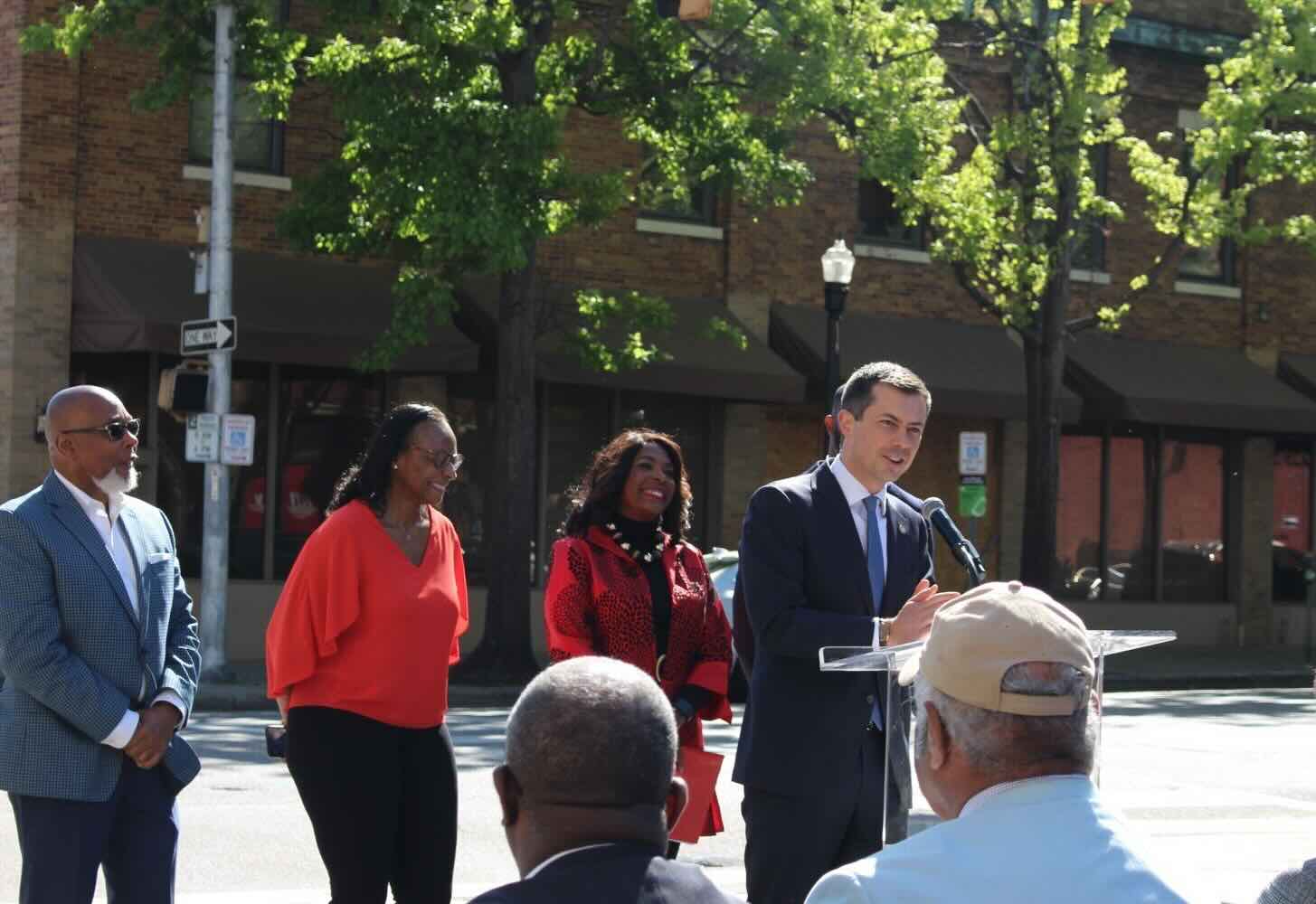ImpactAlpha, Nov. 9 – An old idea is finding new life in the municipal bond market, where a stubborn complacency with conventional ways of doing things is being challenged by a fresh crop of market participants.
The status quo has long meant that smaller, poorer, public entities – often communities of color – face hurdles when they try to borrow in the muni market. What’s sometimes called the “Black Tax” can add nearly half a percentage point to borrowing costs for municipalities with higher proportions of Black residents, recent research shows.
Bundling bond deals from multiple municipalities through state agencies known as bond banks is a time-tested way of achieving economies of scale, with benefits for both issuers and investors. Now, bond banks are getting a new look as a possible tool for not just mitigating inequities, but tackling them proactively.
“Is there an opportunity there? Could a bond bank use its authority to help advance racial equity goals?” said Lourdes Germán of the Public Finance Initiative. “If a bond bank was able to enable borrowing with a social lens, it could potentially find a way to pass on the lower cost of capital to communities that would otherwise pay more, particularly for small communities that face challenges in affordably accessing municipal bond markets. The economics matter.”
The excitement about bond banks springs from a project led by the Public Finance Initiative, working with the National League of Cities and other national partners with a grant from the Robert Wood Johnson Foundation. The group was charged with considering ways to leverage the bond market to disrupt racial inequities.
“We felt in a resounding way that smaller and mid-size communities care about these issues,” Germán told ImpactAlpha, but that small communities face challenges in affordably accessing municipal bond markets.
The Economics
For small municipalities, “the economics” of bringing a bond deal to the muni market means more than higher interest rates. It’s also time-consuming and may drain already-lean city staff for both the initial issuance and what’s called “continuing disclosure:” the financial reporting required over the life of the debt. And any project with a “social” designation often requires additional governance or reporting, Germán noted.
What’s more, the lower dollar amounts needed by smaller communities aren’t as attractive to muni investors or market makers, even as the financing costs to get bonds issued are relatively fixed, no matter the size of the deal. (Editor’s note: there is a special category of debt known as bank qualified-bonds that allow smaller issuers to sell debt directly to banks rather than going to the broader muni market).
Bond banks started in states including Maine and Alaska in the 1970s as a means of addressing many of those issues. Those agencies and others in mostly Northern, mostly rural states, now boast long track records of extending a better overall credit profile to the individual communities that rely on them, and professionalizing and consolidating the underwriting process and the continuing disclosure, thereby making the bonds more attractive to a wider investor audience.
Sheryl Bailey, currently a visiting professor at Virginia Tech, has a long history of managing complex municipal finance initiatives, including as the director of Virginia’s state bond bank.
“Many of the tools of the municipality itself are limited compared to the structural challenges it faces,” she said in an interview. Bailey calls herself “passionate” about helping communities build financial resiliency and says she’s “excited” that conversations about the promise of bond banks are taking place.
But Bailey also calls herself a pragmatist about the details. “The mechanics are key,” she said.
The Mechanics
With muni bonds, perhaps more than other areas of the financial markets, “mechanics” usually means “politics.” And in considering the possibility of a state agency designed to assist local communities, the state government itself is a critical player.
“The muni market only amplifies state policy,” Matt Fabian of Municipal Market Analytics told ImpactAlpha. “To the extent that market personalities discriminate against Black towns, a bond bank could help, but it won’t mitigate state discrimination. The states that need this most are least likely to do something to dampen discrimination.”
Fabian has been vocal about the tension between some Republican-leaning state legislatures and the Democratic, often majority-minority cities within their borders, calling it an “underappreciated risk” in muni bond markets. He points to the water crisis in Jackson, Mississippi, and to the neglected sewer system in Jefferson County, Alabama that resulted in municipal bankruptcy in 2011.
“In general when cities default it’s less about finances and more about what the state does to not help the city navigate a situation,” he told MarketWatch earlier.
Germán isn’t naive about the headwinds. “All of this could turn on political will, and there is no guarantee that the inclusion of social values in a deal will yield a stronger pricing result,” she acknowledged.
State law would govern not just the development of a bond bank, but its programming and financial reporting. For all the enthusiasm for impact-oriented investors in many corners of the markets, there’s been a recent backlash of anti-ESG sentiment and legislation in some states.
Federal policy – and funds – might help mitigate some local opposition, Sheryl Bailey thinks. One model might be the state revolving funds managed by the Environmental Protection Agency’s for clean water and drinking water. It’s no coincidence that many social-justice crises also have an environmental justice component, she notes.
The Market
Whatever the structure winds up being, some observers question how much efficiency can be expected of a market as idiosyncratic and tradition-minded as “muniland.”
“There are a lot of people in the muni market who just chafe at any kind of federal involvement whatsoever,” said Justin Marlowe, a professor at the University of Chicago, who’s researched public capital markets and state funding structures. “They like that the market is decentralized and self-regulated.”
Still, Marlowe notes, “I think that there is a lot of innovation in the muni market right now and there’s going to be more motivation for innovation as interest rates go up and issuers look for opportunities to shave off a few basis points.”
It’s not just issuers who may welcome innovation. The muni market is getting a fresh look from investors who may never have considered buying state and local bonds, but instead seek investment opportunities to redress racial inequities.
Adasina Social Capital, a company that calls itself “a bridge between social justice movements and financial markets,” got an eye-opening muni-market tour when it launched an experimental pilot program in 2020. The company invested $60 million in mostly-Black municipal entities such as cities, water districts, school districts, and some historically Black colleges and universities.
“We found it was very difficult,” said Adasina’s Maya Philipson. “Very opaque, very hard to trade. It was hard to do racial screening.”
Philipson is convinced that the additional oversight and transparency a bond bank could bring could only help. “We’re not willing to accept the status quo,” she said. “We think (the current market) is scandalous. I would feel better as an investor putting more money in this market with more oversight.”
For her part, Lourdes Germán remains optimistic. “I always think there’s time and room for innovation,” she said.
Follow all of ImpactAlpha’s Muni Impact coverage, made possible with support from the Robert Wood Johnson Foundation.











